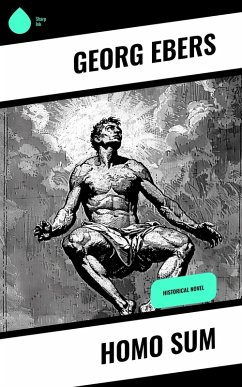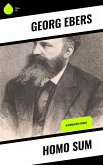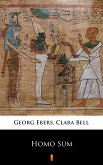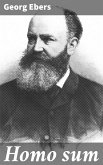In "Homo Sum," Georg Ebers intricately weaves a narrative steeped in the cultural and philosophical tensions of the late 19th century. The story follows the life of a young Roman named Arminius, as he navigates the complex social hierarchies of the Roman Empire and his own burgeoning identity. Ebers employs a rich, descriptive literary style, bringing to life vivid imagery and emotive dialogue that reflect the era's ideals and struggles. The novel engages with themes of identity, freedom, and the human condition, crafting a powerful commentary on both the historical context and the universal quest for selfhood. Georg Ebers, a noted 19th-century German novelist, was deeply influenced by his academic background in archaeology and Egyptology. His passion for ancient history and culture permeates his writings, allowing him to construct narratives that resonate with both historical authenticity and literary depth. Having traveled extensively, Ebers brought a wealth of experience to his works, enriching them with insights that reveal the interplay between the past and contemporary thought. "Homo Sum" is highly recommended for those seeking an exploration of identity and belonging against the backdrop of historical grandeur. Ebers' masterful storytelling invites readers to reflect on their own existence within the tapestry of humanity, making this novel a compelling read for both literary and historical enthusiasts.
Dieser Download kann aus rechtlichen Gründen nur mit Rechnungsadresse in A, B, BG, CY, CZ, D, DK, EW, E, FIN, F, GR, HR, H, IRL, I, LT, L, LR, M, NL, PL, P, R, S, SLO, SK ausgeliefert werden.









